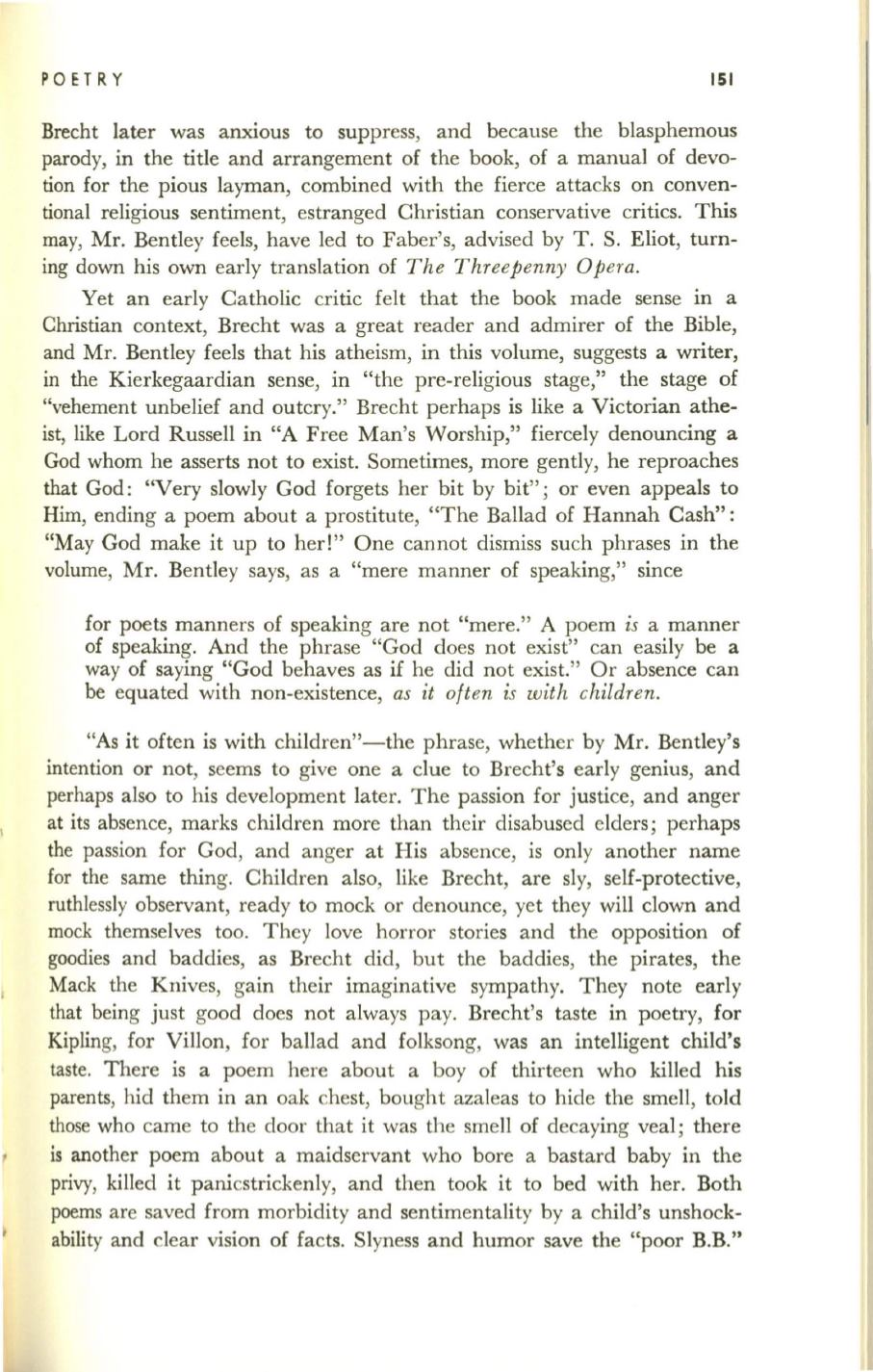
POETRY
151
Brecht later was anxious to suppress, and because the blasphemous
parody, in the title and arrangement of the book, of a manual of devo–
tion for the pious layman, combined with the fierce attacks on conven–
tional religious sentiment, estranged Christian conservative critics. This
may, Mr. Bentley feels, have led to Faber's, advised by T. S. Eliot, turn–
ing down his own early translation of
The Threepenny Opera.
Yet an early Catholic critic felt that the book made sense in a
Christian context, Brecht was a great reader and admirer of the Bible,
and Mr. Bentley feels that his atheism, in this volume, suggests a writer,
in the Kierkegaardian sense, in "the pre-religious stage," the stage of
"vehement unbelief and outcry." Brecht perhaps is like a Victorian athe–
ist, like Lord Russell in "A Free Man's Worship," fiercely denouncing a
God whom he asserts not to exist. Sometimes, more gently, he reproaches
that God: "Very slowly God forgets her bit by bit"; or even appeals to
Him, ending a poem about a prostitute, "The Ballad of Hannah Cash":
"May God make it up to her!" One cannot dismiss such phrases in the
volume, Mr. Bentley says, as a "mere manner of speaking," since
for poets manners of speaking are not "mere." A poem
is
a manner
of speaking. And the phrase "God does not exist" can easily be a
way of saying "God behaves as if he did not exist." Or absence can
be equated with non-existence,
as it often is with children.
"As it often is with children"-the phrase, whether by Mr. Bentley's
intention or not, seems to give one a clue to Brecht's early genius, and
perhaps also to his development later. The passion for justice, and anger
at its absence, marks children more than their disabused elders; perhaps
the passion for God, and anger at His absence, is only another name
for the same thing. Children also, like Brecht, are sly, self-protective,
ruthlessly observant, ready to mock or denounce, yet they will clown and
mock themselves too. They love horror stories and the opposition of
goodies and baddies, as Brecht did, but the baddies, the pirates, the
Mack the Knives, gain their imaginative sympathy. They note early
that being just good does not always pay. Brecht's taste in poetry, for
Kipling, for Villon, for ballad and folksong, was an intelligent child's
taste. There is a poem here about a boy of thirteen who killed his
parents, hid them in an oak chest, bought azaleas to hide the smell, told
those who came to the door that it was the smell of decaying veal; there
is another poem about a maidservant who bore a bastard baby in the
privy, kiJIed it panicstrickenly, and then took it to bed with her. Both
poems are saved from morbidity and sentimentality by a child's unshock–
ability and clear vision of facts. Slyness and humor save the "poor B.B."


